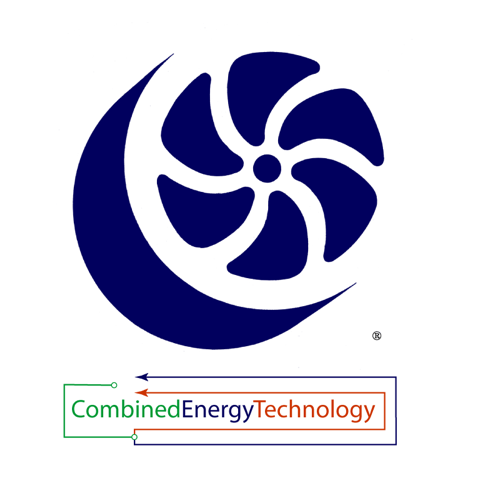Smart Micro Cogeneration
Cogeneration of Heat and Power the Way it Should be
Cogeneration of heat and power using renewable energy sources in our micro combined heat and power (mCHP) systems, the BioGen and the mCHP Generator, with overall efficiencies of over 90% are some of the keys to our products’ ability to reduce carbon emissions. This is what we call smart micro cogeneration.
Average power plant efficiencies in the US are approx. 32.5% and transmission and distribution losses are approx. 5%. This means that it takes approx. 3.6 times more coal to recoup for these energy losses in producing 1 unit of electrical energy at your home or business. This results in coal produced energy emitting up to 6 times more CO2 per energy unit to power and heat your home or business than our high efficiency mCHPs.
We feel strongly that gaining independence from coal electricity should be done in an environmentally conscious way. The use of natural gas and propane in the mCHP Generator, and biomass in the BioGen allows these mCHPs to reduce carbon emissions while still producing the heat and power that we need.
What’s more the BioGen features a carbon negative operation wherein carbon can be sequestered into the ground, instead of being released back into the air. The BioGen is powered by biomass, and, as a result, biochar is formed as a byproduct. This biochar can be used as a soil amendment for farming or gardening. Putting the biochar into the ground effectively sequesters some of the original carbon content into the ground. This is our idea of smart micro cogeneration.
Electric Vehicles
Those that purchased electric vehicles (EVs) in hopes of reducing their carbon emissions may be limiting their potential if they are charging with coal produced electricity. These EV owners may be gaining their independence from petroleum at the cost of becoming more dependent on coal. The BioGen and the mCHP Generator provide viable means for increasing energy usage efficiency, reducing carbon emissions, and unlocking the full environmental potential of electric vehicles.
Many people have concerns that the current electric grid may have problems supporting an influx of electric vehicles that require charging. A recent study by the National Renewable Energy Laboratory (NREL) predicts that the grid would become strained if EV owners become clustered and charge their Evs at the same time, and even more strained when they use fast charging options like those of the Tesla Model S. When electric vehicle owners become clustered, particularly in neighborhoods, then there may be some problems if and when owners decide to charge their vehicles whenever they want.
Electric utilities plan to mitigate this clustering issue by the use of smart grid technology which would monitor electricity requirements and provide energy at regulated, more evenly distributed rates. That is, EVs in the same neighborhood may have to be slowly charged during night time, rather than a quick charge at night or intermittent times throughout the day.
Smart grid technology has not been implemented in most of the U.S., meaning that uncoordinated charging of EVs may cause power outages if the grid cannot support it. In essence, EV owners may not be able to charge their EVs whenever they want. This could prove to be a problem in many cases, including in the case of an emergency occurring that requires you to drive and your EV is not charged fully.
Our mCHP systems would immediately reduce the strain on the grid by providing electricity for charging, or electricity that could be sold back to the electric utility where it would then feed back into the grid to be used elsewhere.
